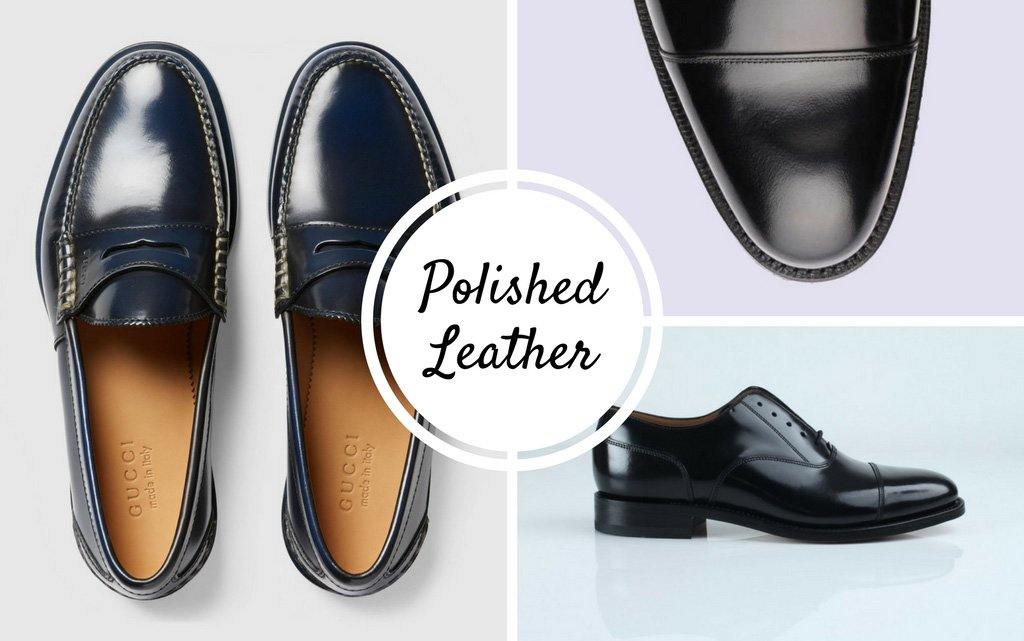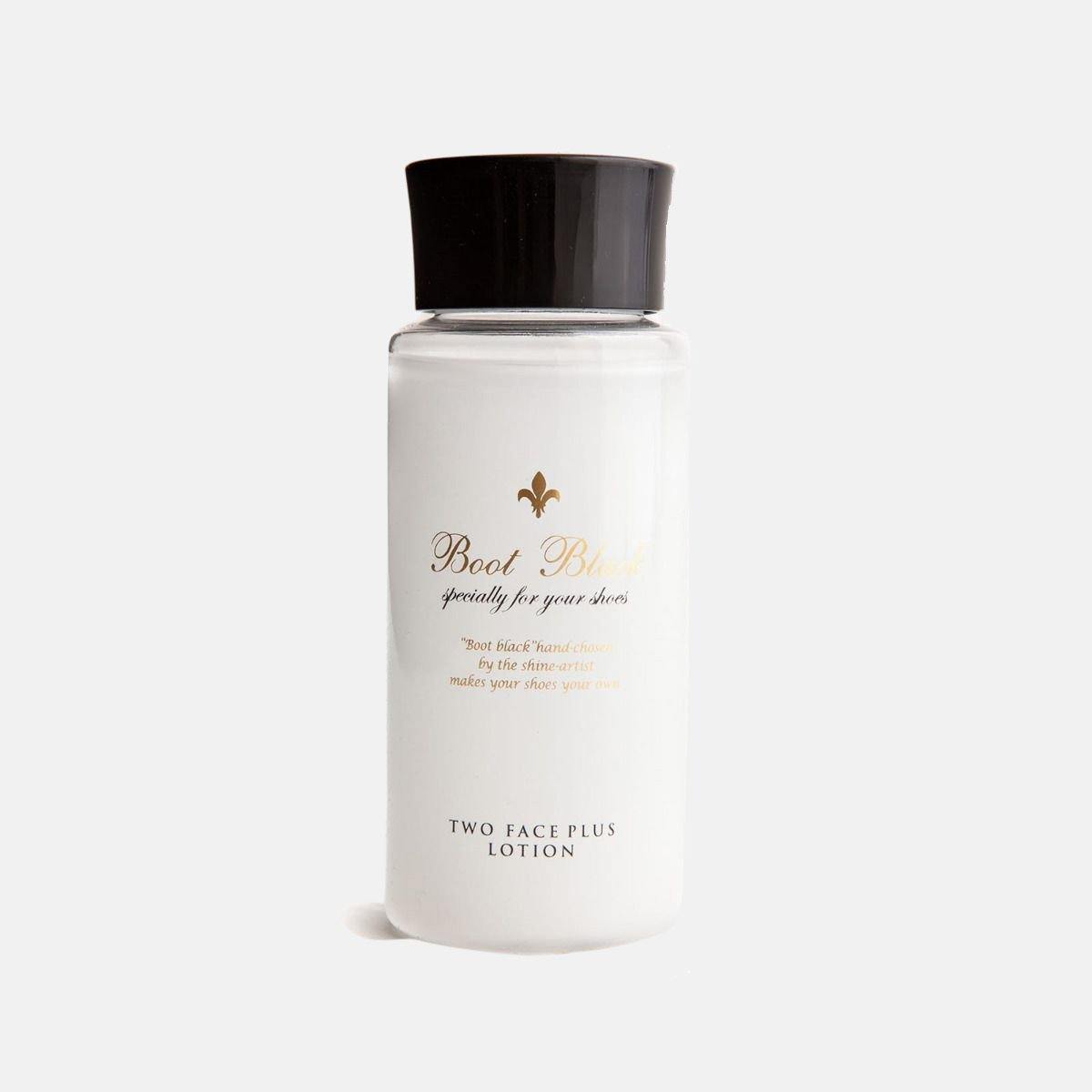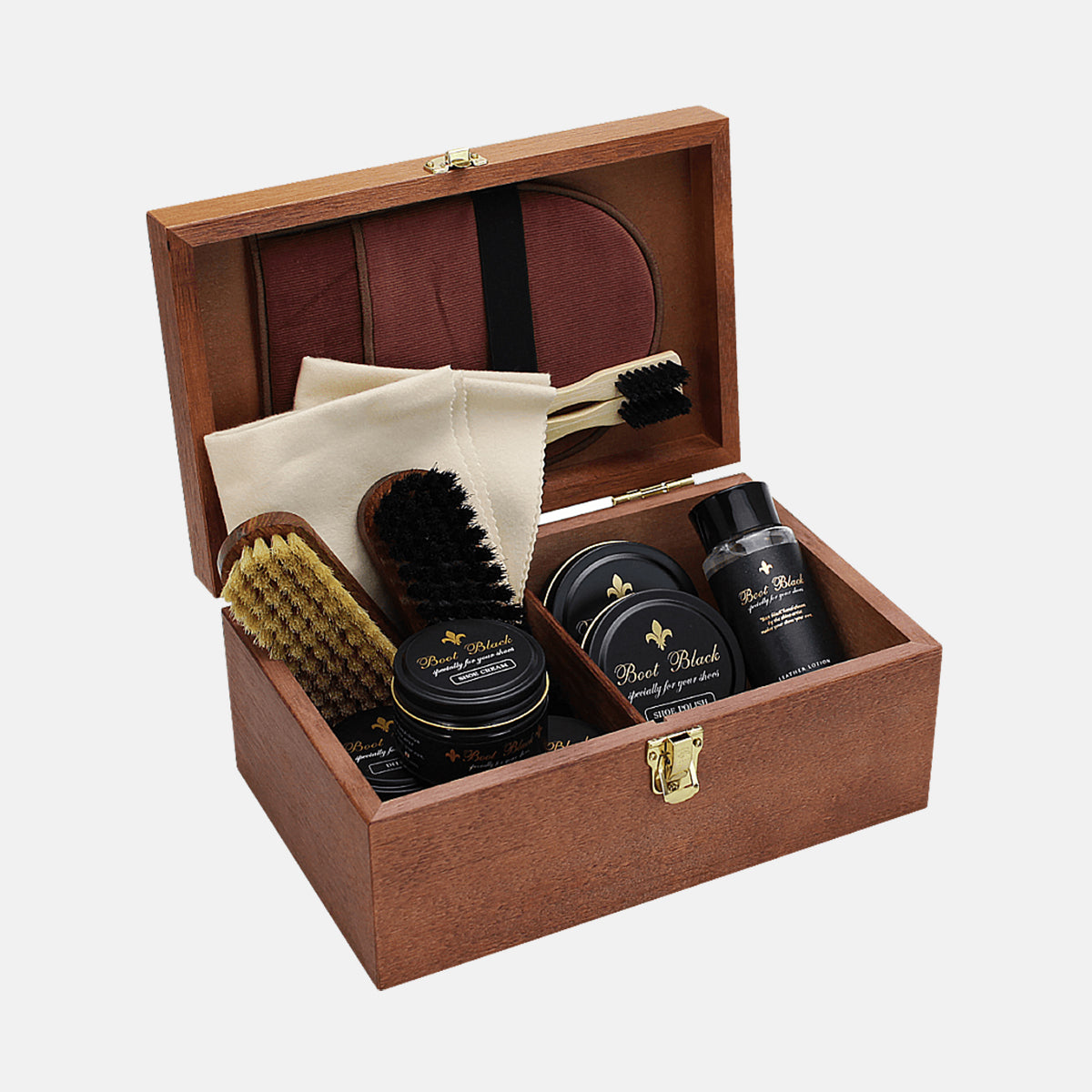Your Cart is Empty
NEW SHIPPING RATES AS OF 04 MARCH 2024. HERE.
Menu

NEW SHIPPING RATES AS OF 04 MARCH 2024. HERE.
Shoe Trees
shoe care
shoe stretchers
Sets

Polished Leather Shoes
June 09, 2021 3 min read
If you are considering purchasing your first pair of Goodyear welt shoes then you should probably know about polished leather. It is used extensively in the footwear industry and by many higher-end shoemakers, including Church’s, Loake, Allan Edmond, Gucci and Prada. Yet it is a controversial leather and one that gets the back up of many a shoe enthusiast.
What is polished leather?
Polished leather, also commonly known as a polished binder or bookbinder leather, has a fine top coat (often acrylic, resins and/or parmesans) added to the leather to give the shoe a highly-polished appearance. Better shoe-makers will add layers of wax to bring about a nice shine before adding the coating. Patent leather is corrected (lower quality) grain leather with a thick acrylic finish, pressed to a high shine.

Why the disquiet?
A search on many popular shoe-related forums and blogs (e.g. Style Forum, Ask Andy and the Shoe Snob) reveals a sizeable community of detractors who warn against polished leather. I've summarised what I believe are their main concerns below:
First, polished leather is not as durable as uncorrected leather. It looks nice, to begin with, but creases form quickly and scuffs are harder to remove. Once the coat cracks, it is game over shoes. Aesthetically, It will not develop a fine patina over time like a pair of (similarly priced) calfskin leathers can.

Second, the leather looks a bit artificial, like plastic. You can polish and buff all you want but you are never going to enhance the shine. Unfortunately, once the artificial shine begins to fade, which it is known to do over time, there is not a lot you can do about it.
Third, you don’t know for certain what leather is ‘under the hood’. According to Justin FitzPatrick from the Shoe Snob, the practice of using lower-grade leather underneath is far more common than people are led to believe. It is a way shoemakers save on materials to maximise profit.
So why bother with polished leather?
There are of course advantages to polished leather. It is more water and stain resistant than uncorrected leathers and requires less maintenance. The coat is also more impervious to scuffs and general wear. For the busy person who appreciates good shoes, but just doesn't have the time or enthusiasm to care for them as one should, polished leather may be a logical choice.
Also, contrary to popular belief, polished leather is not necessarily a lower-grade corrected leather. Church's, for instance, use full grain leather and apply buffing waxes to enhance the natural patina of the hide before finished with a glossy polished binder coat. So there are some good ones out there. The problem lies in 'separating the wheat from the chaff.'
My experience with polished leather

Let it be known that I do prefer a calfskin leather over a polished leather any day. That being said, I own a couple of pairs and they've served me well.
My pair of polished leather Loake Elland Black Oxfords (bottom right above) are about three-years-old. They were a good solution at the time. They have developed some creasing across the vamp, but are holding up ok. They do, however, look a bit artificial and polishing has no effect. I won't be resoling.
I am pretty impressed with an old pair of Church Burwood II (burgundy bookbinder) I own - picked up on eBay for a steal. The leather looks more natural than the Loakes and responds well to polish. The polished leather has stood the test of time fairly well, contrary to popular opinion.
For the man on the market
Polished leather is not for a lot of people, but it is certainly for some people. Polished leather shoes look 'nice' and require little maintenance. They are also useful in wet climates. But the arguments against are many and many of them reasonable.
For the gent looking to invest in his first pair of quality kicks, simply knowing what polished leather is will put him in good stead to make the right purchase decision. Knowing what leather he wants, or doesn’t want, is basic due diligence that will prevent crimson-faced buyers’ remorse later on.
Updated 18 December 2019













